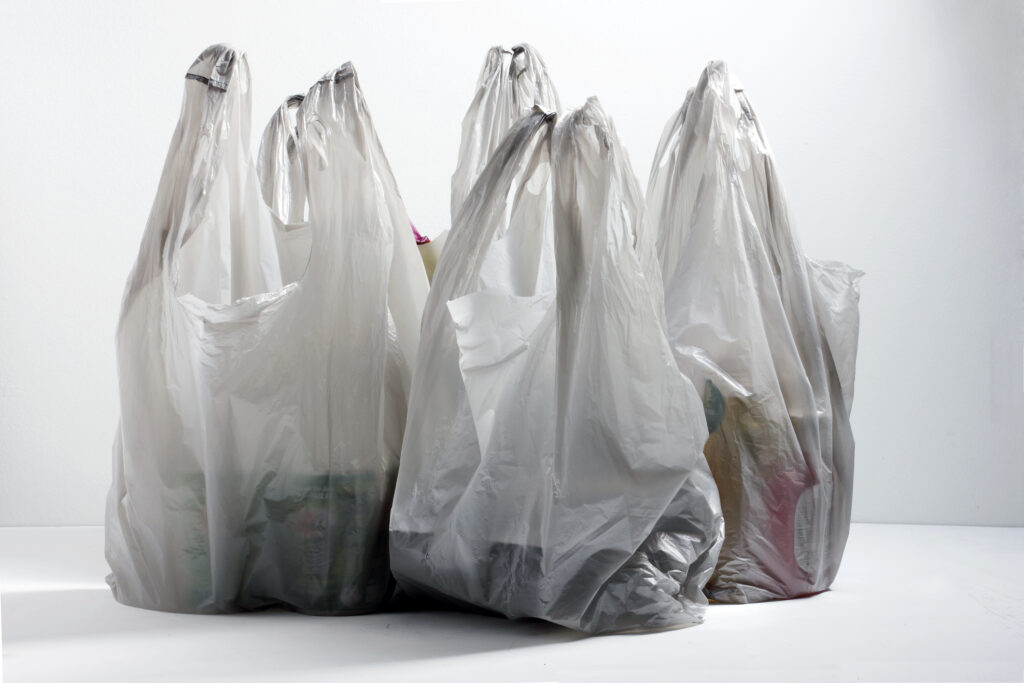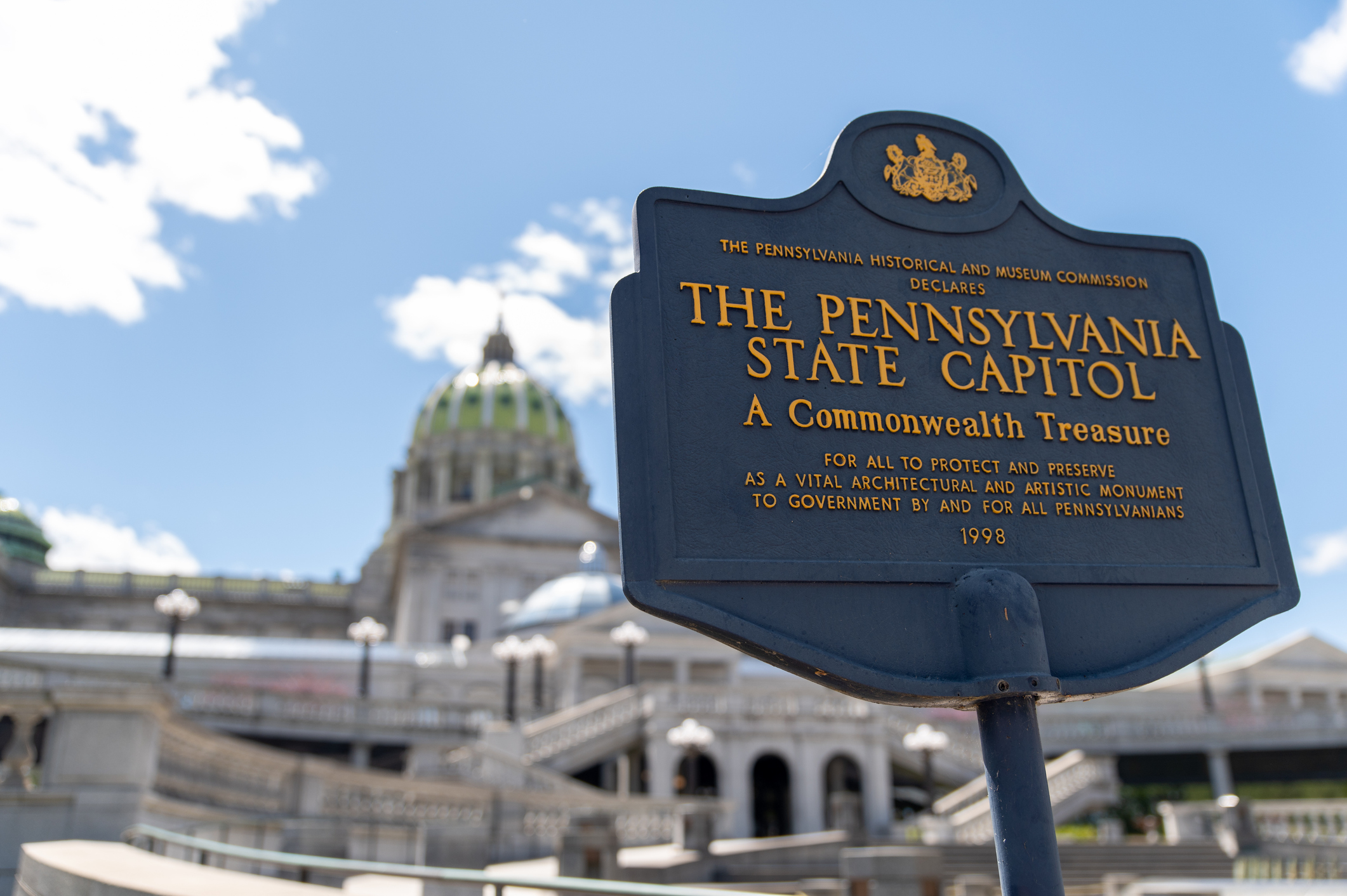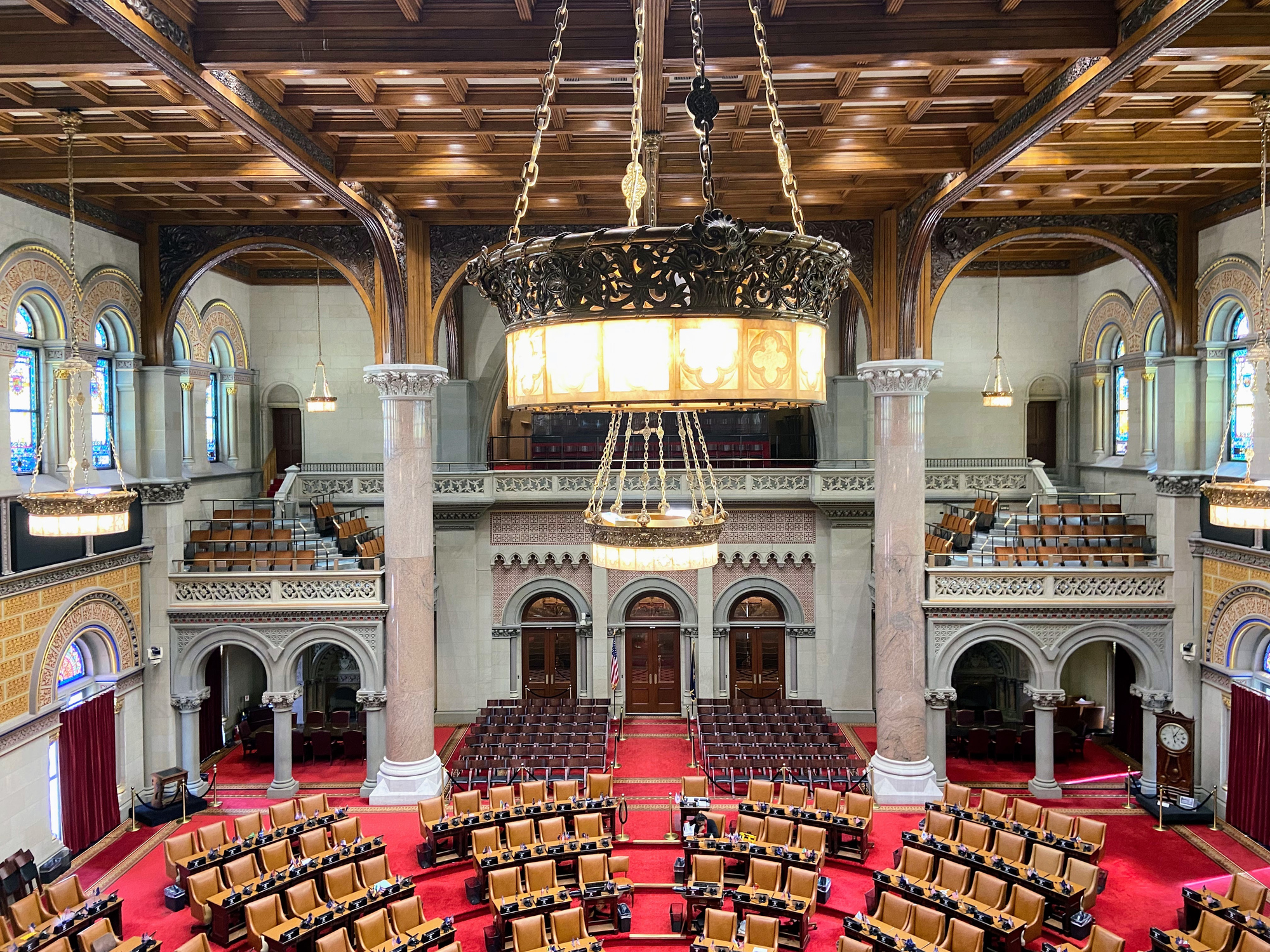
As concerns over plastic pollution continue to grow, state legislatures across the country are revisiting and expanding policies aimed at reducing single-use plastic waste. Plastic bags, widely used for retail checkout, have become a primary target of reform due to their environmental persistence and contribution to litter and microplastics. According to the EPA, plastic containers and packaging make up over 14 million tons of municipal solid waste annually in the U.S., much of which ends up in waterways and landfills.
At least 12 states have enacted some form of single-use plastic bag ban. In 2025, lawmakers in various states, including those below, have introduced or advanced varying pieces of plastic bag ban legislation.
Hawaii: Bill Introduced to Ban Single-Use Plastic and Non-Recyclable Paper Bags
Hawaii lawmakers introduced Senate Bill 1551 to establish a statewide ban on single-use plastic bags and non-recyclable paper bags at points of sale. The bill would prohibit businesses from providing non-compostable plastic or non-recyclable paper bags. Instead, they could offer recyclable paper, compostable plastic, or reusable bags, provided they charge a 10¢ pass-through fee per bag.
The bill would include detailed specifications for compostable and recyclable alternatives, mandate itemized receipts that list the bag fee, and outline exemptions for items such as prescriptions, dry cleaning, and takeout food. The bill would task the Department of Health with enforcement, with penalties ranging from $100 to $1,000 per violation. Local jurisdictions could still adopt stricter rules.
Maine: Proposal Seeks to Eliminate 5¢ Bag Fee
In January 2025, Maine lawmakers introduced LD 56, a bill to eliminate the statewide 5¢ fee on recycled paper and reusable plastic bags. Currently, retail establishments are required to charge this fee at checkout as part of the state’s waste reduction strategy. The proposal, introduced as emergency legislation, would repeal the fee while maintaining exemptions for small retailers, restaurants, and organizations providing hunger relief. Supporters cited concerns over the financial impact of the fee on consumers.
New Mexico: Single-Use Plastic Bag Ban Stalls in 2025 Legislative Session
New Mexico’s House Bill 392, known as the Single-Use Plastic Bag Act, would have prohibited retail establishments from providing single-use plastic bags beginning January 1, 2026. The bill allowed for exemptions and proposed a 10¢ fee on recycled paper bags, with revenue designated for local or state waste reduction programs.
The House Energy, Environment, and Natural Resources Committee considered the bill, reporting a committee substitute with a “Do Pass” recommendation. However, the legislation did not receive a floor vote before the session concluded and, therefore, did not advance.
Oregon: Expanding the Ban on Plastics
In May 2025, the Oregon Legislature passed Senate Bill 551, which would expand the state’s existing laws regarding plastic waste. The bill, awaiting the governor’s signature, would prohibit retailers and restaurants from offering reusable plastic or fabric checkout bags starting January 1, 2027. It would also prohibit food service establishments from automatically providing single-use utensils or condiment packaging unless requested, effective July 1, 2026.
The legislation includes a provision to phase out small plastic toiletry containers in hotels with 50 or more rooms by 2027, with the restriction then extended to all lodging establishments by 2028. The Oregon Health Authority would have rulemaking authority to support implementation.
Pennsylvania: Statewide Plastic Bag Ban Proposed, Equity Measures Considered
Senator Judith Schwank announced her intention to introduce legislation in May 2025 to ban single-use plastic bags statewide in Pennsylvania. The bill would prohibit retailers from providing plastic bags at checkout, allowing only recyclable paper bags for a small fee. The bill includes exceptions for essential uses, including produce, frozen foods, and prescription medications. The legislation would also direct the Department of Community and Economic Development (DCED) to run a public education campaign to raise awareness and support the transition.
In a complementary effort, Representative Roni Green has proposed a bill to ensure equitable access to alternatives. Her legislation would require retailers in areas with local or statewide bag bans to offer free alternative bags to all customers, regardless of income or benefit status. The goal is to prevent plastic reduction policies from disproportionately impacting low-income residents who may struggle to afford paper or reusable bags.
Virginia: Lawmakers Target Plastic Carryout Bags at Grocery Stores
House Bill 1662, introduced in January 2025, would prohibit grocery stores in Virginia from distributing plastic carryout bags starting in 2027. The bill defines exempt uses, including bags for produce, bulk items, takeout food, and prescriptions.
It requires grocery stores to implement programs that encourage the use of reusable bags, such as offering discounts or educational campaigns. The Department of Environmental Quality would enforce the policy, with fines up to $500 for repeat violations. The bill also reaffirms the existing authority of local authorities to levy a five-cent tax on plastic bags, with the revenues directed toward environmental cleanup and the distribution of reusable bags to SNAP and WIC recipients.
From The Experts
Expert insights from the authors at Duane Morris Government Strategies.
Ryan Stevens
At least 12 states have enacted some form of single-use plastic bag ban. In 2025, lawmakers in various states, including those noted here, have introduced or advanced varying pieces of plastic bag ban legislation.
Latest News
Photo credit: iStock.com/Niiaz Sabirov In 2025, several U.S. states have introduced legislation to prohibit geoengineering, defined as intentional large-scale interventions in Earth’s atmosphere or climate systems, such as cloud seeding or solar radiation modification. These [...]
Photo credit: iStock.com/Hamburg Studios As Pennsylvania continues to navigate an evolving energy landscape, state leaders are proposing new approaches to ensure reliability, affordability, and sustainability. Governor Josh Shapiro recently announced his “Lightning Plan”, a six-part [...]
Photo credit: iStock.com/Ray Tan As the impacts of climate change intensify, several U.S. states are taking legislative steps to address the mounting costs of adaptation and resilience. New York, New Jersey, and Vermont have recently [...]
Photo credit: iStock.com/Mikhail Dmitriev State lawmakers have taken legislative action to protect wildlife, including birds such as loons and swans, from lead poisoning. We have seen states pass laws banning lead sinkers or painted lead [...]






Stay In Touch